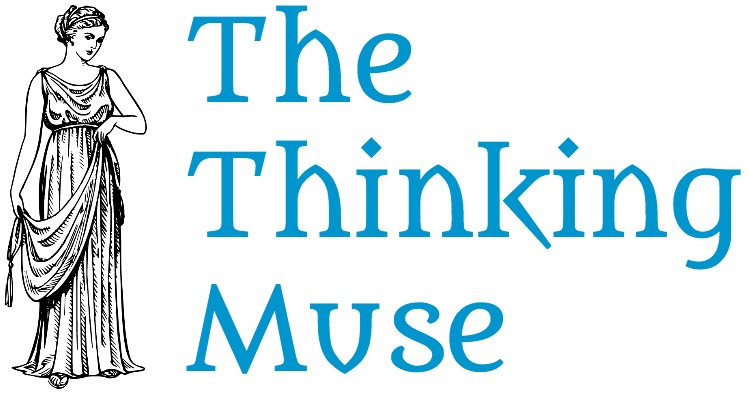How to find out if you’re an introvert

Large parties! Group projects! Audience participation!
If these thoughts make you cringe and want to run for the hills, then you may be an introvert.
The last few years there has been a revolution going on. If you were unaware, it is likely because it is an introvert revolution. They revolt quietly. *wink* Read more to find out what it is all about.
Many feel that our current society has made introverts feel like we are not quite normal or doing-it-wrong. American culture is highly stimulating and aggressive. All the noise can easily overshadow introverts. But perceptions of introverts can and do vary widely by culture.
With the new introvert consciousness, people are stepping up and proudly proclaiming their introversion. Many are tired of feeling ashamed or put down for being who they are naturally. Oddly enough, recent research shows that introverts may account for approximately half of all people. Half! I guess there is no accounting for feeling like the odd man out.
It is time to for the quiet voices to be heard.
My journey with introversion
Frankly, I never really gave it much thought. I always knew there were different types of people. I had heard of peers getting jobs that required them to take a Myers-Briggs test for best placement. All I knew was that it was a personality test. It sounded interesting, but that was all the exposure I had.
I just always knew I was one of the nerdy, thinking types. I didn’t really think to slap a label on it, besides possibly nerd. (Terminology of nerd versus geek is another discussion for a different day, so for the time I will use nerd.)
My quietness has also been misinterpreted as snobbiness. This is no doubt also attributed to my bitchy resting face, but what is a girl to do? It’s my face. I can’t change it. I have just accepted that I am slightly different and that is okay.
A few years back, someone mentioned I should read the book Quiet, by Susan Cain. I did. It was quite enlightening. I now stand alongside the many who are proud to claim their introversion.
What is an introvert?
So what does it really mean to be an introvert?
Defining what an introvert is has evolved over the years. Here is a quick and dirty review for you. Each theory has arguments for and against why they are viable. I am not judging, I am merely presenting information. I have used many resources extensively through this entire article. For reference, please see the full citations at the end of this article under Resources.
Carl G. Jung, a psychiatrist, founded analytical psychology. He saw introversion and extroversion as opposite attitude types that we grow into naturally. The introvert attitude compels one to reflect and focus on their mental life.
The next formative step in understanding was developed by Isabel Briggs Myers and Katharine C. Briggs. They developed the Myers-Briggs Type Indicator. This personality inventory identifies your preferences to enable you to learn about yourself. One of the preferences refers to introversion or extroversion.
The results of the inventory are broken down into 4-letter descriptor. Each letter symbolizes a preference. I briefly list them here in a simplified version. Continue your own research if you are interested in finding out where you fall. They are:
- E or I. They stand for extrovert or introvert. (Where your main interest lies: outer or inner world.)
- S or N. They stand for sensing or intuitive. (How you perceive things.)
- T or F. They stand thinking or feeling. (How you come to a conclusion.)
- J or P. They stand judging or perceptive. (How we deal with the world around us.)
Personally, I am an INTJ or introvert, intuitive, thinking, and judging. Each classification is based on how you answer the questions. Your answers will place you on the spectrum for each preference.
The Big Five is another personality indicator that identifies introversion. The Big Five measures personality traits of:
- extroversion
- agreeableness
- conscientiousness
- neuroticism
- openness to experience.
Extroversion is defined by energy, assertiveness, and sociability among other things. Introverts simply have less of the extrovert qualities.
In the past, introverted personality has even been listed in the international classification of disease. It was classified as a variant of schizoid personality disorder.
Many take issue with these definitions as introversion is looked at as some sort of deficiency or lack of something (extroversion). They don’t feel they are lacking anything, just different. Introversion is not a disease, condition, or deficiency. It is a natural and normal temperament.
Recently, introversion has become kind of a hot topic. There are many resources owning and disowning various qualities of introversion. But because people are complex, introversion will look different everyone. That is just the nature of the beast.
It seems that the one thread most discussions boil down to is energy. Mental energy, but could also involve physical, emotional, and spiritual energy. Mental energy is a difficult thing to measure, but it is very easy to feel. What makes you feel invigorated and what makes you feel depleted?
Introverts get energy from mindful activities. They get inspired by ideas and concepts. Our still waters run deep. Then in turn, introverts spend that energy on social and highly engaged activities.
We are in danger of being misunderstood as unsociable, self-centered, shy, or lonely. While this may be true in some instances, *smirk*, it is unfair to paint introverts with such a broad brush. We do socialize, just in a different preferably more intimate way. Our ability to reflect can make us more in tune with others and how they feel. Shyness is an attribute that is independent of introversion. Lastly, being alone does not equate to being lonely.
We are all just a unique stew of personality and experience. Being an introvert is just one of the many aspects that we may include.
So why does all this matter?
It all about you and your happiness!
The best-adjusted  people are “psychologically patriotic” meaning they are proud to be what they are. For introverts, that means understanding what introversion is and how to manage our energy in a high-octane world. Defining what we want our lives to look like, so we can fulfill our personal purpose.
people are “psychologically patriotic” meaning they are proud to be what they are. For introverts, that means understanding what introversion is and how to manage our energy in a high-octane world. Defining what we want our lives to look like, so we can fulfill our personal purpose.
The field of positive psychology focuses on strengths and virtues that enable people to thrive. It is a very exciting field to me and I will write more on it in future articles. Regardless, it focuses on what is good and what made it that way instead of what is wrong and why. It is much more empowering.
I especially love the concept of flow presented by Mihaly Csikszentmihalyi. It is an optimal state of clarity and transcendence. As many states of flow are solitary or mental pursuits, introverts are especially likely to attain this state. Truly inspiring!
5 great books for introverts
I have read a few introvert books and I wanted to share my favorites with you. Keep in mind, I am not a book critic. Use this guide as you see fit to determine which books you may be interested in checking out yourself. Pick a different book for each mood.
- Quiet: The Power of Introverts in a World That Can’t Stop Talking by Susan Cain. This bestselling book started my own exposure to the introvert revolution. The writing is relatable because it is highly anecdotal in nature. It gently weaves around from many perspectives that will leave you feeling understood and affirmed. For those questioning if you are an introvert, she has a quick assessment in the book as well as on her website. For more Susan Cain, you can also view her TED talk.
- The Introvert’s Way: Living a Quite Life in a Noisy World by Sophia Dembling. This fun little book takes a very informal approach. It covers different topics in many very short chapters with a chatty voice. It feels like talking to a girlfriend and may make you laugh.
- Introvert Power: Why Your Inner Life is Your Hidden Strength by Laurie A. Helgoe, PhD. This book nicely covers how introversion has been viewed over the years. It includes wise words to help you not only accept introversion but celebrate it. It’s like soul food.
- The Everything Guide to the Introvert Edge: Maximize the advantages of being an introvert – at Home and at Work by Arnold Kozak, PhD. This book has tons of information. I love this kind of book, especially when I am feeling sort of short-attention-span-ish or only have 10 minutes before I drift off to sleep. It is clearly broken down by topic so you can easily choose which pages you want to jump to and which you may want to skip. The lists, images, and bold subheadings make it readily digested.
- The Introvert Advantage: How to Thrive in an Extrovert World by Marti Olsen Laney, Psy.D. You can tell a psychotherapist wrote this book. It is unique from other introvert books in that it goes deeper into brain physiology and processes. It then goes on to how to best manage the world and yourself. As a nerd, I appreciate the matter-of-fact tone when I want the facts. Good stuff.
Many of these books cover similar topics but just in a different manner and tone. Topics usually include:
- Accepting your introversion.
- Dealing with parties.
- Managing relationships.
- Parenting introverted children.
- Working in a culture that rewards extroversion.
- Comparing introversion with other conditions such as shyness, highly sensitive people, social anxiety, and autism.
- Affirmation quotes and lists of famous introverts. Evidently, we are in good company. Here are a few:
- Albert Einstein
- Charles Darwin
- Isaac Newton
- Eleanor Roosevelt
- Mahatma Gandhi
- Abraham Lincoln
- Rosa Parks
- Warren Buffet
- Bill Gates
- Steven Spielberg
- Clint Eastwood
- J.K. Rowling
- T.S. Eliot
- Salvador Dali
Are you with us?
There you have it. I hope I have provided some food for thought. Are you an introvert? Is someone you love an introvert? Take the poll or let me know in the comments.
Resources
Cain, Susan. Quiet : the power of introverts in a world that can’t stop talking. 1st pbk. ed. New York : Broadway Paperbacks, 2013.
Dembling, Sophia. The introvert’s way : living a quiet life in a noisy world. 1st ed. New York : Penguin Group, 2012.
Helgoe, Laurie A. Introvert power : why your inner life is your hidden strength. 2nd ed. Naperville, Ill. : Sourcebooks, 2013.
Kozak, Arnold. The everything guide to introvert edge : maximize the advantages of being an introvert–at home and at work. Avon, Massachusetts : Adams Media, 2013.
Laney, Marti Olsen. The introvert advantage : how to thrive in an extrovert world. New York : Workman Pub., 2002.
Myers, Isabel Briggs, and Peter B. Myers. Gifts Differing: Understanding Personality Type. Palo Alto, Calif.: Davies-Black Pub., 1995.




